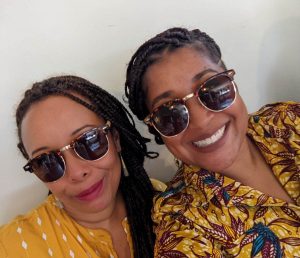The growing narrative around “shifting power” is timely and should happen, however like most things the devil is always in the details. Despite this narrative, questions still linger about how to move from rhetoric to meaningful action. This piece looks a little closer into what “meaningful action” really could mean.
The development sector is determined by funding patterns, a global economic apartheid and governance system that means most of the world’s resources are in the Global North which also provides the funding and resourcing for development work that primarily happens in the Global South. This relationship is a manifestation of power and wealth, and how the power-wealth dynamic influences the development space.
From an African perspective, the history of how power manifests in the continent’s interaction with the west goes back in time from the slavery period, through to colonization and now to a capitalist and neocolonial governance framework. The underlying theme is extractivism and power “over”, all the while building wealth in the Global North, with a centering of wealth and power working in tandem. In reimagining power, we reimagine what the world and international development would look like if we de-linked power from wealth that creates artificial barriers between communities in the Global South and North.
We reimagine what the world and international development would look like if we de-linked power from wealth that creates artificial barriers between communities in the Global South and North
Having power isn’t a negative concept, having power is a good thing, but the challenge exists in how it is used. Power should be used “with” others rather than “over” others. All the while ensuring everyone is able to fully appreciate the power that we all have to make decisions based on our own histories and contexts leading to solutions for all of us to thrive at the community, national, regional, and even the global level.
We also need to move away from the notion that the ones who are ‘seen’ as holding the power, economically and politically, are being altruistic in wanting to shift power. They have benefited from years of extracting natural resources from formerly colonized countries to ensure their own industrial and commercial development, which has then created the global climate crisis we are all facing and having to solve together. Formerly colonized regions need reparations for Loss and Damage as they have been dealing with the impacts of the climate crisis longer and are being hit harder by floods, droughts and other climate disasters.
Formerly colonized regions now have to focus on resilience to these disasters as well as adaptations such as focusing on renewable sources of energy. So that we don’t continue to exist in an energy poverty dynamic, and that we are able to achieve a society that allows all her citizens to access universally accessible public services to include but not limited to education, healthcare, safe public transportation and other essential services required to live a decent life.
All of us must shift away from centering economic growth as measured by GDP and instead begin to center people’s well-being, ensuring a decent quality of life for all. This is how we will begin to solve the crisis we are facing.
There are many ways to begin to shift the power. From making sure that analyses on regions that are formerly colonized are done by citizens from those regions to giving space and resources for people to speak from their own histories and current nuances and to think of what alternatives could exist for them. Shifting the power means beginning to de-link wealth from power. A very easy example here would look at those who fund not having direct influence on strategic direction, especially of regions where they are not from but are investing resources in – thus separating power from wealth. Strategic direction should be decided by national and regional actors who have the solutions. We must start to decolonize the notion of knowledge and move away from the idea that knowledge must be written to be valid and / or scientific – recognizing that there are various forms of knowledge which should be given space and power to influence policies. For example, the Nawi Knowledge hub is curating African women’s thought leadership on the economy. It continues to curate a collection of knowledge that goes beyond written sources to include podcasts, webinar recordings and more as they find them.
The future of shifting power lies in the ability to radically reimagine a world of balance.
The future of shifting power lies in the ability to radically reimagine a world of balance. For that to happen power must shift and we must do this with others. We must all be part of the movement to #ShiftThePower, ensuring equity and justice globally. We have to come to terms with the fact that power largely lies in the way the global economy is governed and by whom. We must be ready to radically reimagine this global economy and start building towards a global community without the extraction that comes with capitalism – where balance means everyone is able to live lives of joy and dignity.
Crystal Simeoni is the Director at Nawi: Afrifem Macroeconomics Collective and Catherine Rodgers is Head of Engagement Support, Greenpeace International. Both authors are based in Nairobi, Kenya.



